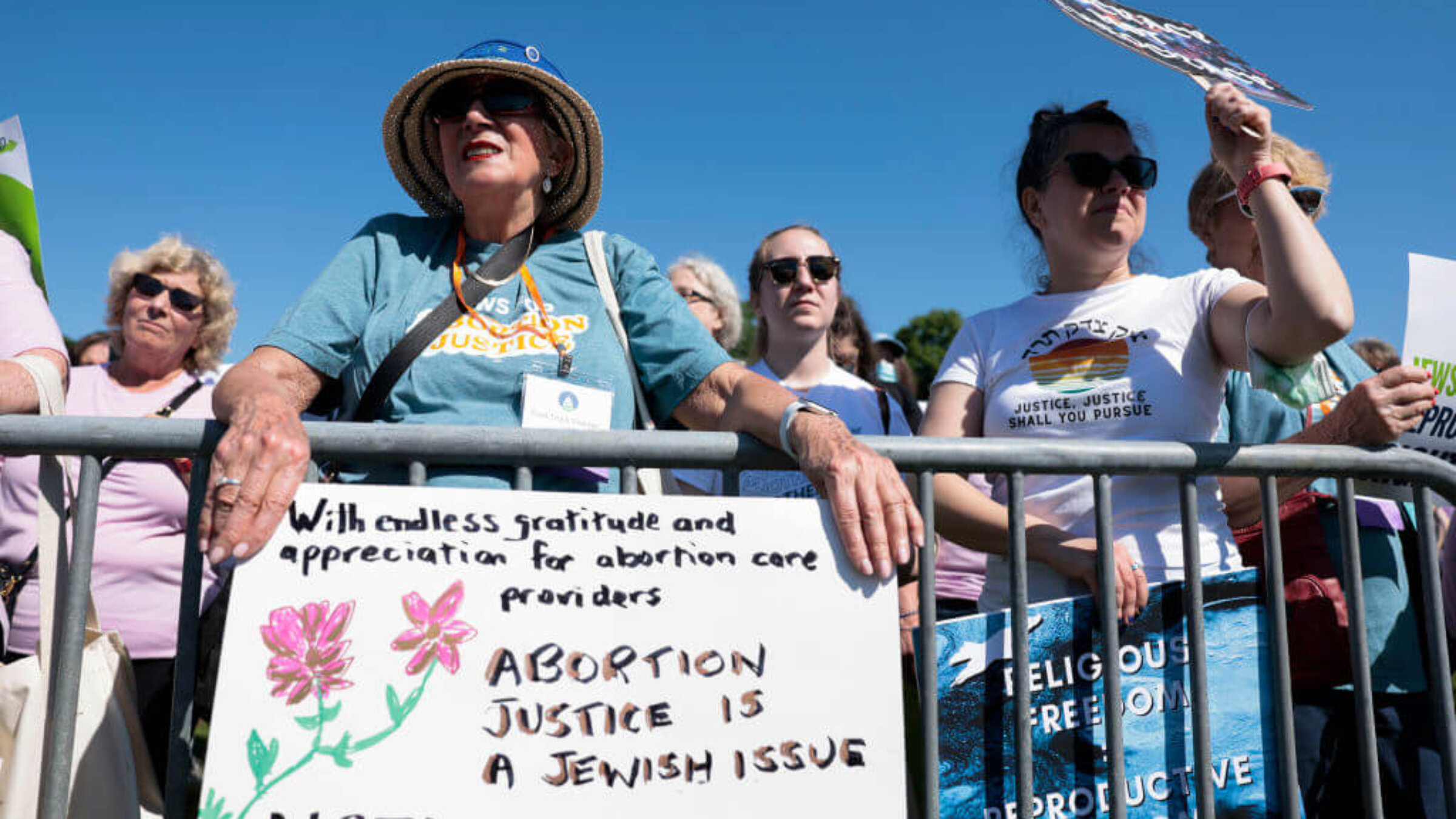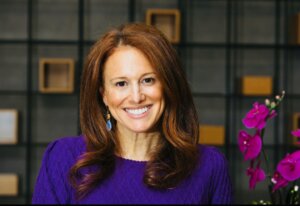Jewish voters have the power to carry Democrats in the midterms
Abortion and the ongoing threats to democracy are the most important issues for Jewish voters

Protesters cheer as they attend the “Jewish Rally for Abortion Justice” rally at Union Square near the U.S. Capitol on May 17, 2022 in Washington, DC. Photo by Anna Moneymaker/Getty Images
Last week, President Joe Biden convened hundreds of Jewish leaders for the first-ever Jewish High Holiday reception at the White House. The excitement in the East Room was palpable, indicative of our collective emergence from a pandemic and a presidency whose policies were antithetical to Jewish values. But when the president took the stage, he made clear that we had not entirely emerged from this dark shadow.
Just as the fate of the Jewish people hangs in the balance between Rosh Hashanah and Yom Kippur, our nation faces a similar inflection point. Recognizing the moment, Biden sent a clear message that our work to restore the soul of our nation is unfinished, emphasizing that there is more we can and must do to defeat extremism and defend democracy in 2022.
This message echoed the warning the president issued in his Continued Battle for the Soul of the Nation address from Philadelphia a month before. In that speech, the president declared that America is at a crossroads, requiring us to choose whether we will be “a nation of hope and unity and optimism, or a nation of fear, division, and of darkness.” He affirmed that “MAGA Republicans have made their choice. They embrace anger. They thrive on chaos. They live not in the light of truth but in the shadow of lies.” But he reassured Americans that “together, we can choose a different path. We can choose a better path.”
American voters have a chance to make a choice between these two distinct paths in five weeks, in the congressional midterms.
The upcoming elections present Americans with a binary choice between MAGA Republicans and Democrats aligned with our values who are defending incredibly narrow majorities in the Senate and House. While the incumbent president’s party typically loses seats in midterm elections, there are signs Democrats can buck this historical trend this year.
Following the Supreme Court’s June 24 decision to overturn Roe v. Wade, the trajectory has shifted. According to the Washington Post, “no issue has upended the battle for Congress and statehouses as abruptly as abortion.” Since the decision in Dobbs v. Jackson Women’s Health Organization, Republicans’ polling lead in the generic congressional ballot narrowed, the enthusiasm gap between Republican and Democratic voters closed and Democrats overperformed in special elections in Kansas, Alaska and New York.
Abortion is not the only issue defining the midterms. Republican threats to our democracy — including the Big Lie — also loom large for American voters. Exactly one year after the Jan. 6 insurrection a majority of Americans believed U.S. democracy was “in crisis,” and last month, nearly seven in 10 Americans believed our democracy was “in danger.” According to an NBC News poll in August, threats to democracy were cited as the top issue among a plurality of American voters heading into the midterms. This follows the eight hearings held this summer by the House Select Committee to Investigate the Jan. 6 attack on the U.S. Capitol, watched by tens of millions of viewers.
While the future of democracy and abortion access are concerns for American voters, they are an even greater concern among Jewish voters. According to a national survey released last month by the nonpartisan Jewish Electorate Institute, 74% of Jewish voters followed the Jan. 6 hearings, 57% are more motivated to vote because of them and 45% cite “the future of democracy” as one of the two most important issues (along with abortion) determining their vote in the midterms. This is more than double the percentage of American voters who cited democracy as their top issue in the August NBC poll.
Abortion access is also of paramount importance to Jews, who overwhelmingly believe abortion should be legal and that the health and life of the mother come above all else. According to the JEI poll, more than four out of five Jewish voters disapproved of the Dobbs decision, 38% of Jewish voters cite abortion as one of their top two policy issues heading into the midterms and 56% are more motivated to vote following the overturn of Roe v. Wade.
The consensus is even higher among Jewish voters for the issues that rank next as priorities: gun safety reform, combating climate change and antisemitism. This data indicates that an overwhelming and bipartisan majority of Jewish voters are not only voting for Democrats in November, but they’re doing so to defend the future of our democracy, rights and other Jewish American values.
While Jews are only 2% of the population, they have a relatively higher impact on the outcome of elections because of their exceptionally high voter turnout rates and geographic concentrations in swing states. This was the case in the 2020 presidential election, which was decided by just over 100,000 votes in Pennsylvania, Georgia and Wisconsin. In these states and more, the margin by which Biden won was exceeded by the number of Jewish voters, demonstrating that Jewish Americans played a critical role in ensuring he won the Electoral College vote count. When elections are this close, each key constituency matters, and that’s especially true of Jewish voters.
President Biden’s remarks last week demonstrated that he understands and appreciates the unique role played by Jewish Americans in our democracy and implored us to take action to defend it. He reminded us that the Talmud instructs, “It is not required that you complete the work, neither may you refrain from it,” and cited the late Rabbi Lord Jonathan Sacks who taught that “nothing is broken beyond repair.”
We can bring about the change needed in this country by ensuring Democrats win on Nov. 8 through our activism, leadership, and of course, our votes.
Let’s heed the president’s call to bring about change and make 5783 the Year of the Jewish Voter.
To contact the author, email [email protected].
















